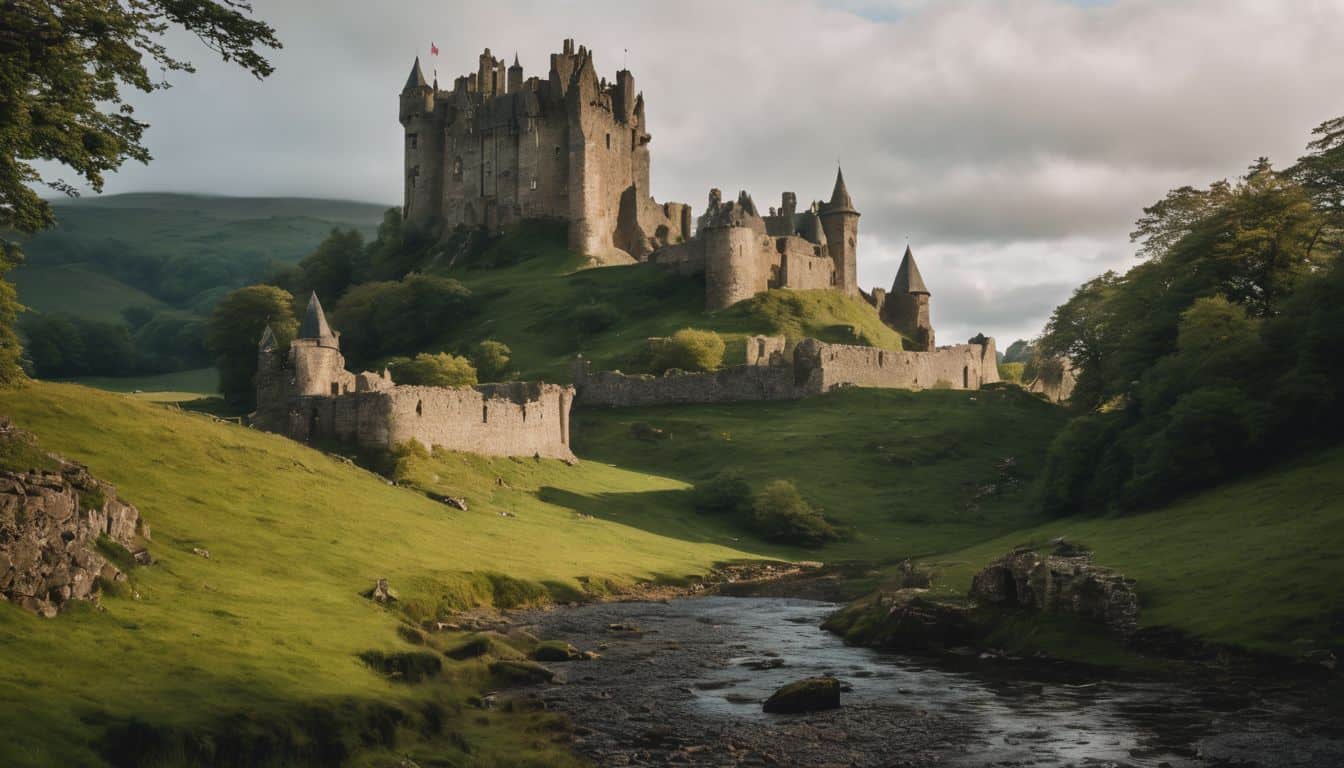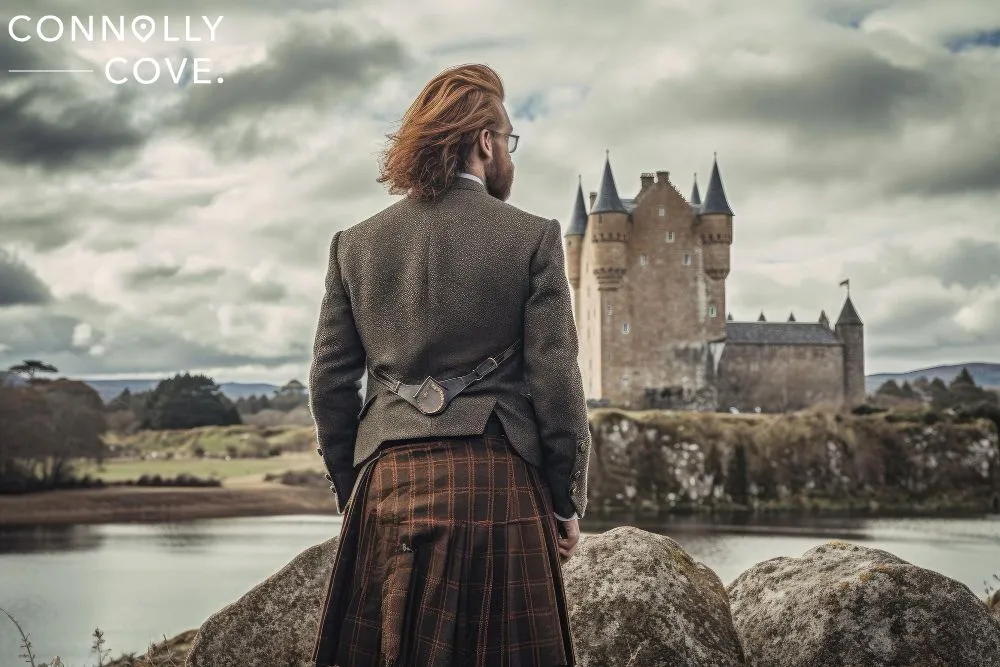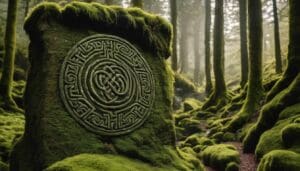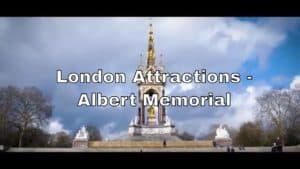A Comprehensive Overview of The History of Scotland

Updated On: March 21, 2024 by Yasmin Elwan
Welcome to a captivating exploration of the rich and storied history of Scotland, a land steeped in ancient tales and enduring legends. From the rugged landscapes of the Highlands to historic cities such as Edinburgh and Glasgow, Scotland’s history is a tapestry woven with threads of resilience, cultural diversity, and moments that have shaped the nation’s identity.
Embark on a journey through time, where clans and castles, battles and alliances, have left an indelible mark on the Scottish landscape. Join us as we delve into the fascinating saga of Scotland’s past, uncovering the stories that have moulded this nation into the unique and vibrant tapestry it is today.
Early History of Scotland
Long ago, Scotland stepped into the New Stone Age. This time was around 4000 BC. The Bronze Age followed next in 2000 BC, and then the Iron Age came about 700 BC. In those days, four groups made up Scotland. They were the Angles, Britons, Picts, and Gaels.
Each of these groups contributed to the cultural mosaic, speaking diverse languages that echoed across the ancient landscapes. The intricacies of this historical period laid the foundation for the Scotland we know today, highlighting the land’s enduring significance across millennia.
Roman Invasion
The Roman invasion is a crucial part of the Scottish history. When the Romans conquered Britain in 43 AD, they also took hold of what is now Scotland. They built impressive structures like the Antonine Wall and Hadrian’s Wall to mark their territory.
However, the Roman presence in Scotland was short-lived. The indigenous Celtic people, known as Picts, didn’t easily submit to Roman rule and engaged in continuous resistance. Eventually, the Romans retreated from northern Britain completely by 410 AD. This period of Roman influence left its mark on Scottish history and culture, paving the way for future events and shaping the country we know today.
Post-Roman Scotland
The withdrawal of Roman forces from Britain in the early 5th century AD had a profound impact on Scotland, leading to a period of significant change and uncertainty. While the exact details are obscured by historical uncertainty, this post-Roman era witnessed a nuanced interplay of cultural continuity and innovation.
Gaelic languages thrived, reflecting the linguistic heritage of the remaining Britons. Simultaneously, new political entities, including the Picts and Gaels, emerged, establishing their kingdoms and unique identities. Trade networks underwent shifts, with intensified connections to Scandinavia and Ireland.
As Christianity gradually gained ground, introducing a new spiritual framework, pre-existing customs and beliefs persevered. This dynamic period set the stage for the medieval kingdoms of Scotland, showcasing the remarkable resilience and adaptation of its people following the Roman departure.
Rise of the Kingdom of Alba
During the early Middle Ages, Scotland saw the rise of the Kingdom of Alba. This kingdom emerged in the 9th century as a result of various Gaelic-speaking kingdoms coming together under one ruler. The Kingdom of Alba was known for its powerful monarchs, such as Kenneth MacAlpin and Constantine II, who sought to unify and strengthen Scotland.
They faced challenges from Viking invasions and rival clans but ultimately succeeded in establishing a stable and prosperous kingdom. The Kingdom of Alba laid the foundation for what would later become modern Scotland, with its own distinct culture and traditions.
The History of Scotland Throughout the Centuries

Scotland’s rich history spans centuries, from the bloody battles of the Wars of Independence to the groundbreaking innovations of the Industrial Revolution and beyond. Let’s delve more into the fascinating chapters of this captivating country’s past.
The Wars of Independence
Scotland’s Wars of Independence were a significant chapter in the country’s history. These wars, fought in the 13th and 14th centuries, were centred around Scotland’s desire for independence from English rule. The most famous figure associated with these wars is William Wallace, who led the Scottish resistance against English forces. His story was popularised in the movie “Braveheart.”
Another important figure was Robert the Bruce, who eventually became King of Scotland and played a crucial role in securing independence. The Wars of Independence were marked by intense battles and shifting alliances, but they ultimately shaped Scotland’s identity as a nation that fiercely values its sovereignty.
The Stuarts and the Protestant Reformation
During the reign of the Stuarts in Scotland, there was a significant religious and political change known as the Protestant Reformation. This movement challenged many of the beliefs and practices of the Catholic Church and resulted in the establishment of various Protestant denominations. The Stuarts, particularly James VI, played a crucial role in this reform by encouraging Protestant beliefs and promoting a new form of worship.
The Protestant Reformation significantly impacted Scottish culture, leaving an enduring mark on the country’s religious, social, and political landscape. The arrival of Protestantism, particularly the Calvinist strain, brought about a radical shift in religious practices, dismantling the authority of the Catholic Church. The new religious doctrines emphasised individual interpretations of the Bible and rejected certain rituals and practices associated with Catholicism.
This transformation extended beyond theology, influencing the governance of Scotland. The Presbyterian Church, with its emphasis on a representative system of church government, became the dominant Protestant denomination. This ecclesiastical structure influenced Scotland’s political governance, contributing to the development of a more participatory and decentralised political system.
Moreover, the Reformation fueled a sense of national identity and independence, distinct from English influence. The Presbyterian Church, with its egalitarian ethos and focus on education, played a role in shaping the intellectual and educational landscape of Scotland. The impact of the Reformation resonates in the cultural fabric of Scotland, leaving a legacy that is evident in its religious traditions, educational institutions, and political structures.
Union with England and Jacobitism
The union between Scotland and England is a significant part of Scottish history. In 1707, the two countries joined together to form the Kingdom of Great Britain. This union was met with mixed reactions in Scotland, as some saw it as an opportunity for economic growth and stability, while others viewed it as a loss of independence.
During this time, there was also a movement known as Jacobitism, which aimed to restore the exiled Stuart dynasty to the throne of Great Britain. The Jacobites were supporters of James VII of Scotland (also known as James II of England) and his descendants. They believed that they had a rightful claim to the throne and fought against those in power.
The Jacobite cause found support primarily among Scottish Highlanders, who felt marginalised by English rule and saw the Stuarts as their rightful leaders. There were several uprisings throughout Scottish history led by Jacobite supporters. The most famous was the rebellion in 1745, led by Charles Edward Stuart, also known as Bonnie Prince Charlie.
Industrialisation and Enlightenment
During the period of industrialisation and enlightenment, Scotland experienced significant changes that shaped its modern identity. The Industrial Revolution resulted in advancements in technology and manufacturing, leading to the growth of cities like Glasgow and Edinburgh. Industries such as shipbuilding, textiles, and mining flourished, creating jobs and wealth for many Scots.
Scotland also played a crucial role in the Enlightenment era, with renowned thinkers like Adam Smith contributing to economic theories and philosophers like David Hume exploring questions of knowledge and human nature. This intellectual movement had a profound impact on Scottish society, fostering education and innovation. Today, remnants of Scotland’s industrial past can still be witnessed in its historic buildings and museums, while its continued pursuit of knowledge exemplifies the enduring legacy of enlightenment thinking.
Modern Scotland
Through the 20th century, Scotland navigated the complexities of a changing world while dealing with deindustrialisation and exploring its political future. Today, Scotland stands at a crossroads, a self-governing nation within the United Kingdom, striving to balance its proud heritage with a vision for a forward-looking future. Its journey has been marked by both hardship and triumph, and its people are forever defined by their unwavering resilience and enduring spirit.
Today, you can explore Scotland’s rich heritage through its majestic castles, such as Edinburgh Castle or Stirling Castle, which stand as reminders of its past glory. In addition to historical sites, cities like Glasgow offer a vibrant arts scene with world-class museums and galleries showcasing Scottish art throughout the ages.
Recent Developments and Current State
Scotland has seen significant developments in recent years, making it an exciting destination for travellers. The country has undergone a resurgence in cultural and artistic activities, with festivals celebrating music, literature, and performing arts taking place throughout the year.
Scotland’s economy has also experienced growth, particularly in sectors such as tourism, renewable energy, and technology. This has led to improved infrastructure and increased investment in sustainable initiatives. Today, Scotland continues to preserve its rich history while embracing modernity and innovation. Visitors can explore ancient castles, picturesque landscapes, and vibrant cities that offer a blend of traditional charm and contemporary amenities.
The history of Scotland is a fascinating journey through time, from its ancient past to the present day. From the Roman invasion and the rise of powerful monarchs to the wars of independence and industrialisation, the history of Scotland is filled with important events that have shaped its identity.
Today, Scotland stands as a nation with a rich cultural heritage and magnificent landscapes that captivate visitors from all over the world. Whether you’re a history buff or simply looking for an adventure, Scotland has something incredible to offer.
Why is the Scottish history important?
Scottish history is important for understanding Scotland’s cultural heritage, global impact, and historical events that have shaped the nation and influenced the world.
How did Scotland become a country?
Scotland became a country through the unification of the Picts and the Scots in the 9th century, leading to the establishment of the Kingdom of Alba, which later asserted its autonomy through the Wars of Independence and the Declaration of Arbroath.
Why is it called Scotland?
Scotland is called Scotland because of its origins with the Scoti, a Celtic tribe from Ireland who migrated to what is now Argyll in the 5th century. The name “Scotland” is derived from “Scoti,” and over time, it became the widely recognized name for the country.
What is the significance of Edinburgh Castle?
Edinburgh Castle is significant for its historical and cultural importance, serving as a symbol of Scottish power and resilience and housing the Honours of Scotland and the Stone of Destiny.






